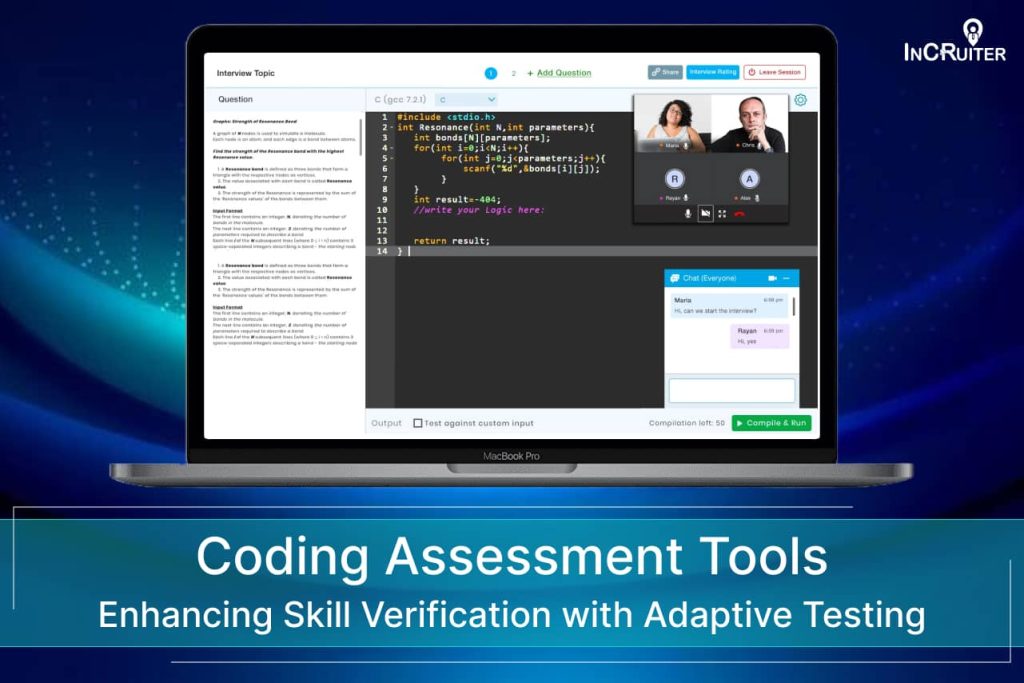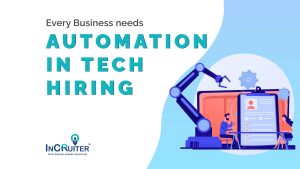
Today, every company relies on software as an essential instrument. And to say that businesses cannot function without programmers would not be an exaggeration. However, when determining who should fill those positions, reviewing CVs, conducting interviews, and carrying out reference checks with candidates’ previous employers are the usual practices. However, these practices are often insufficient or overly judgemental and call for reconceptualization.
This is where coding assessment tools come in. These tools alter the hiring process by providing a proper and scientific method of assessing the coding ability of a candidate. In this blog, you will learn how coding assessment tools are changing the recruitment market, as well as the benefits associated with using advanced coding assessment software.
The Evolution of Coding Assessments
We can trace the history of coding assessments back to manual coding interviews or take-home assignments, which lacked standardization and were susceptible to bias. This also raised doubts about the validity of these assessments, given the ease with which unfair methods could be employed to pass them. This led to the development of modern adaptive testing.
Also read: Coding Assessment Platform: Improving Developer Screening
Introducing Adaptive Testing
Adaptive testing or Computerized adaptive testing (CAT) is a type of test that changes the level of questions to suit the subject’s aptitudes during the test.
Neither too few nor too many questions overwhelm the applicants, therefore enabling a more accurate evaluation of their capabilities. While keeping the same degree of accuracy as conventional testing, adaptive testing halves the testing time.
Types of Coding Assessment Tools
There are various types of coding assessment platform available, each designed to meet different needs:
- Pre-employment Coding Tests: Usually conducted before the interviews, pre-employment coding tests help companies to exclude unfit candidates.
- Live Coding: In live coding interviews, interviewers observe and listen as candidates develop solutions in real-time via video conferencing.
- Take-home Assignments: These assessments could be very useful because they allow candidates to do the coding assignments at their own pace.
The Role of Adaptive Testing in Coding Assessments
CAT is a major development in the field of coding assessments. In addition to using algorithms and machine learning to customize the difficulty level for each applicant, CAT changes the questions themselves. It also increases the level of interest and assesses the candidates’ abilities on a realistic scale.
The benefits of CAT in coding assessments are as follows:
- Reduced Fatigue: Fewer candidates are likely to feel overwhelmed because they only receive questions relevant to their level of ability.
- Increased Motivation: Customising questions to the candidate’s ability helps to keep them interested and motivated throughout the evaluation.
- Faster Results: CAT’s instantaneous response allows candidates to immediately identify their areas of strength and weakness.
The Importance of Candidate Experience
While live coding interviews hold significant value, it is crucial to prioritize the candidate’s experience. Even if a candidate does not receive a job offer, a positive assessment experience can enhance their perception of the company. The following key factors contribute to a positive assessment experience:
- Clarity: Giving applicants well-defined rules and criteria will help to lower their nervousness and improve their performance.
- Interface: A well-designed, easily navigated platform can greatly affect the assessment experience.
- Feedback: Candidates value timely comments on their performance because it allows them to identify areas of strength and development needs.
Choosing the Right Coding Assessment Tool
Given so many choices, choosing the finest coding assessment tool might be challenging. With its extensive capabilities, easy-to-use interface, and dedication to assisting businesses in selecting the best talent, InCruiter’s coding assessment platform shines. This platform unlocks numerous competitive advantages for you.
Flexibility
One of the key features of InCruiter’s assessment platform is its adaptive nature. Depending on the coding ability of the test subject, this platform dynamically adjusts the level of its questions. It can give tough questions to good coders and relatively easy questions to others, resulting in a more accurate test of the candidate’s true coding ability and an equally challenging experience for all.
Real-time Visibility
The InCruiter provides an additional feature to adaptive testing. It allows companies to conduct Live Coding interviews with candidates and watch them work their way through a coding problem in real-time. What you glean from the problem-solving “process” is almost as important as the “answer” that you would get from a traditional test.
Scalability
Furthermore, InCruiter has designed its coding assessment platform to be scalable. It can meet the ongoing requirements of a large enterprise, as well as the needs of a startup looking to hire its first developer. Common applicant tracking systems can also integrate with the platform, streamlining and expediting the recruitment process.
Also read: 5 Biggest Hiring Challenges Faced by Recruiters in 2024
Conclusion
Gradually, technical hiring is changing; among the front runners in this change are the coding assessment tools. Companies can improve their talent evaluation and employment outcomes by using the improved coding assessment tool and customizable testing strategies. Using these technologies will become essential for businesses trying to remain relevant and attract the best talent in the market, given the rising need for qualified developers.
Also Read: Live Coding Interviews: Revolutionizing Technical Assessments
Ready to Transform Your Hiring Process?
Discover how our AI-powered interview platform can streamline your recruitment and find the best candidates faster.






